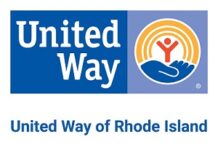
PROVIDENCE – Applicants from Providence and Barrington touting food reuse, book ownership and local arts engagement centers were named Tuesday morning by the Rhode Island Foundation as the 2018 winners of the Carter Fellowship for Entrepreneurial Innovation.
Chosen from nearly 200 applicants, those individuals are Eva Agudelo, Kate Lentz and Erminio Pinque.
Now in its seventh iteration, this grant program award $200,000 to each recipient and allows them four years to test and implement their proposals to improve the quality of life for Rhode Islanders.
Providence resident Agudelo proposed the launch of Hope’s Harvest RI which will recruit and mobilize volunteers to feed the hungry and prevent food waste by rescuing surplus fruits and vegetables from local farms.
“Collecting unharvested fruits and vegetables offers a straightforward and cost-effective solution to the twin challenges of wasted food and hungry people. It also addresses the environmental impacts of feeding underserved populations with commodity food shipped from thousands of miles away instead of what is readily available in our own backyard,” said Agudelo in prepared remarks.
Lentz, a Barrington resident, proposed Raising Readers – an initiative which will create access to book ownership among kindergarten, first-, second- and third-grade low-income students in an effort to improve reading rates.
“Studies show that children growing up in homes with at least 20 books get three years more schooling than children from homes without books. Providing elementary school students access to great books fostered by a passionate network of adult readers is a necessary, bold and reenergized approach to tackling literacy head on in Rhode Island,” she said in a statement.
Pinque, also of Providence, proposed the re-purpose of vacant storefronts as cultural-activity hubs in the hopes of inspiring large-scale public events be hosted there.
“There’s a general concern about ‘brain drain’ and the lack of investment by young people as well as seasoned entrepreneurs in building upon the existing assets and unique character of downtown centers throughout Rhode Island,” he said in prepared remarks. “By creating a series of ‘place transformation’ centers, we’ll take spaces that have great potential but lack a showcase for the local creative flavor that sets them apart and could attract visitors and engage their communities.”
Carter Fellowship for Entrepreneurial Innovation grants, also known locally as “genius grants,” are made possible through the philanthropy of the Carter family.
“Every year we are reminded of the talent and inventiveness that thrives here in Rhode Island,” said Letitia Carter, whose husband John passed away in October 2017, in a statement on Tuesday. “As these projects take shape, we look forward to seeing to the positive impact they will have on our state.”
This round of fellowships is the first to be awarded after John’s death and the first to bear his name. Days before his passing, the Rhode Island Foundation re-branded the grant program from its initial name, Innovation Fellowships, to one recognizing the long-term philanthropic impact of the couple.
The re-branding also elongated the tenure of the grant program from three years to four and increased the maximum number of fellowships awarded each year from two to three. The total available grant funding remains $600,000 per year and the maximum available to each fellow is now $200,000 – $100,000 less than before the rebranding.
Foundation President and CEO Neil Steinberg “applaud[ed]” the Carter’s continued philanthropic support of the program and said of the 2018 winners: “This year’s recipients offer impressive strategies for creating change and addressing the abundant opportunities that our state offers.”
Applications espousing “a new, novel, or re-energized approach that had not been tried meaningfully in Rhode Island” were given the highest priority.
A panel of judges – including Marie Langlois, retired managing director of Washington Trust Investors; Alan Litwin, KLR managing director; and Lou Mazzucchelli, coordinator of Bryant University’s entrepreneurship program – evaluated the applications.
This group will also meet with the fellows every six months throughout the four-year duration of their grant to measure progress and learning.
Nearly 1,900 applications have been received by the Rhode Island Foundation throughout the program’s seven-year history. Prior to Tuesday’s announcement, 11 fellowships had been awarded to 12 individuals.
Previous recipients include Ditra Edwards and Donna Childs (2017); Raymond “Two Hawks” Watson (2016); John Haley, Emily Steffian and Daniel Kamil (2015); Amy Bernhardt and David Dadekian (2014); Dr. Lynn Taylor and Adrienne Gagnon (2013); Soren Ryherd and Allan Tear (2012).
Emily Gowdey-Backus is a staff writer for PBN. You can follow her on Twitter @FlashGowdey or contact her via email, gowdey-backus@pbn.com.












